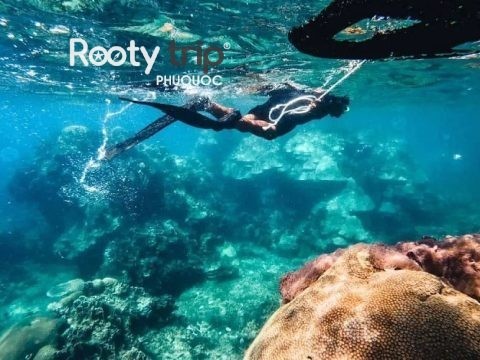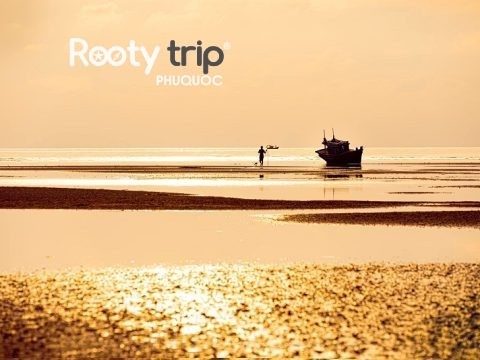Snorkeling Tips & Safety Guide for Beginners
19/05/2025Snorkeling is one of the most accessible and exciting ways to experience the ocean. With trusted tour providers like Rooty Trip, it’s also easy to find guided snorkeling tours tailored for beginners. Unlike scuba diving, snorkeling requires minimal equipment and training-you simply need a snorkel and a mask to begin exploring the underwater world. However, to ensure both safety and enjoyment, this comprehensive snorkeling tips & safety guide is designed especially for beginners.
What is snorkeling and why should you try it?
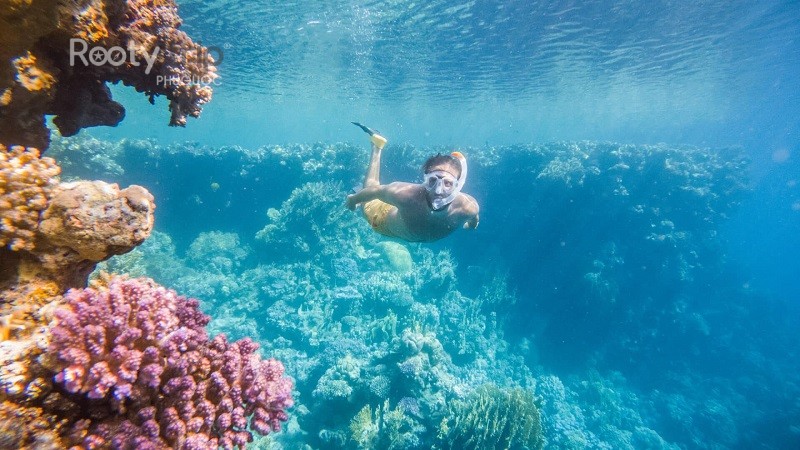
Definition and difference from scuba diving
Snorkeling is an activity where you float on the water’s surface while breathing through a snorkel tube and observing the underwater environment. Unlike scuba diving, snorkeling does not require air tanks or in-depth training, making it ideal for shallow waters and new adventurers. If you’re wondering why this activity is so popular on the island, check out why snorkeling in Phu Quoc is the perfect choice to learn more about the experience, safety, and best locations.
Benefits of snorkeling
- Explore marine life up close
- Relax and reduce stress
- Improve breathing and stamina
- Deepen your connection with nature
Essential snorkeling gear checklist
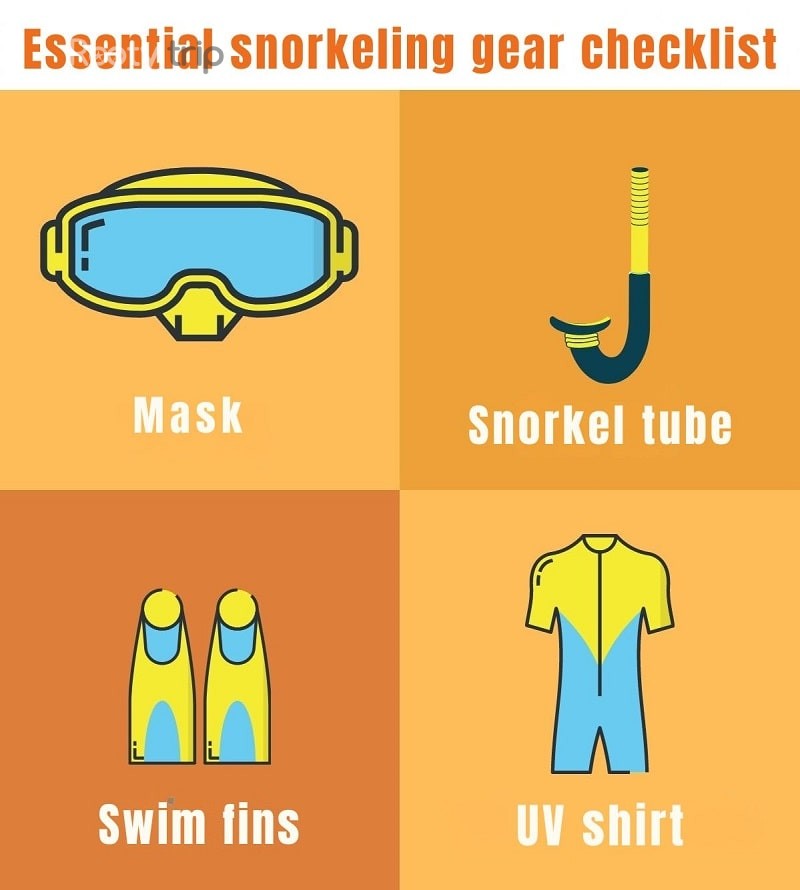
Mask – choose the right fit
Ensure your mask fits snugly to prevent water leakage. Full-face masks offer easier breathing but should be well-ventilated.
Snorkel tube
There are two main types: dry snorkels and semi-dry snorkels. For beginners, a dry snorkel with a splash guard is recommended to prevent water from entering.
Swim fins
Fins help you move more efficiently in the water. Choose a comfortable size that doesn’t cause foot pain.
Optional gear
- Rash guard or UV shirt
- Waterproof camera
- Anti-fog spray or toothpaste
- Flotation vest (for non-swimmers)
Top snorkeling safety tips
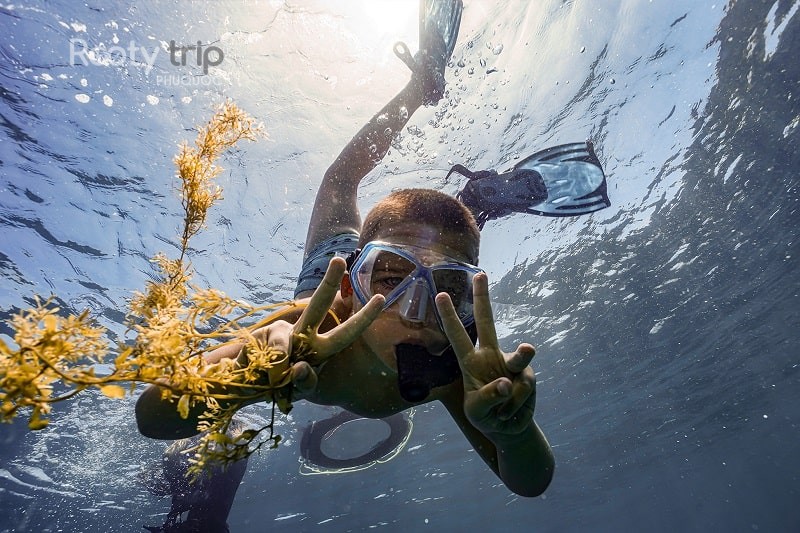
Know the area and conditions
- Check weather, tides, and currents before entering the water.
- Avoid areas with heavy boat traffic.
Never snorkel alone
Always go with a partner or in a group. This is crucial in case of emergencies.
Stay calm and breathe steadily
- Inhale and exhale through the snorkel tube.
- Don’t panic if water enters the mask-clear it calmly.
Don’t touch marine life or coral
Touching corals can harm both them and you. Protecting coral reefs is vital to preserving the ecosystem.
Be aware of weather and tide changes
Currents and wave conditions can change quickly, especially for beginners.
Tips for first-time snorkelers
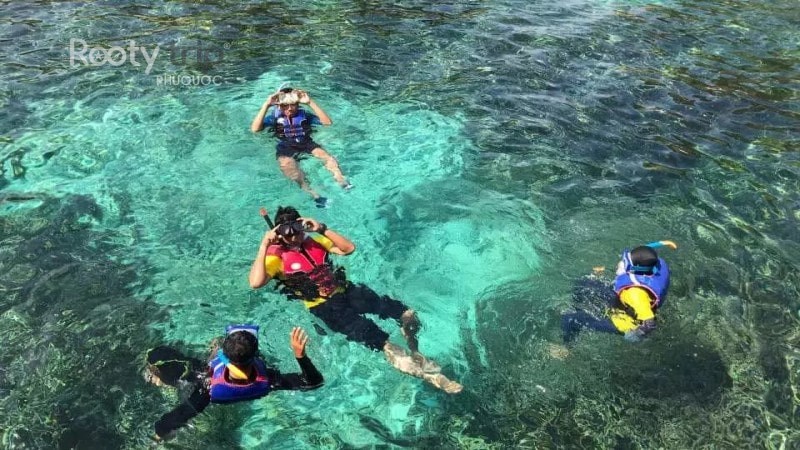
Practice breathing in shallow water
Get used to breathing through the snorkel in shallow areas before heading farther out.
Maintain a relaxed, horizontal position
Don’t tense up. Let your body float and use gentle leg kicks.
Use a flotation vest if needed
Even non-swimmers can enjoy snorkeling safely with the help of flotation devices.
Don’t panic if water enters the snorkel
- Blow forcefully to clear the tube.
- Calm your breath before continuing.
Common snorkeling mistakes to avoid
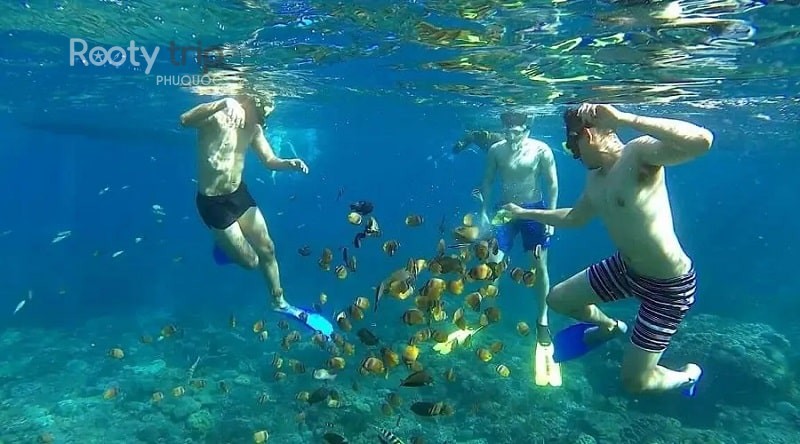
Foggy Mask
- Use saliva, toothpaste, or anti-fog spray before diving.
Overexertion
- Stay close to shore and don’t push beyond your limits.
Ignoring local guidelines
- Always follow instructions from guides and warning signs.
Touching or standing on coral
- This damages fragile reef systems and may cause injury.
Best snorkeling spots in the world
- Great Barrier Reef, Australia – The largest coral reef system on Earth
- Hanauma Bay, Hawaii – Perfect for first-timers
- Maldives – Crystal-clear water and abundant marine life
- Phu Quoc & Nha Trang, Vietnam – Easy access and guided tours available
Snorkeling is more than just a water activity-it’s an invitation to connect with the ocean. With the right gear, mindset, and safety awareness, anyone-even non-swimmers-can enjoy this adventure to the fullest. For an unforgettable underwater experience, check out our Snorkeling Tour in Phu Quoc tailored for all levels.


